
In our Today In History Reading List feature, we take the events of a particular day in history and try to give you a work of fiction and a work of non-fiction relating to those events.
1154 Henry II of England Crowned King In Westminster Abbey
Henry was the son of Matilda the daughter of Henry I. When Henry I died a civil war broke out between Matilda and Stephen of Bois. A Civil War which Stephen won. However Matilda’s son restarted the war in the 1140s. As part of a peace treaty orchestrated by King Stephen and Henry, Stephen agreed to make Henry his heir. Stephen died in October 1154 allowing Henry II to become king.
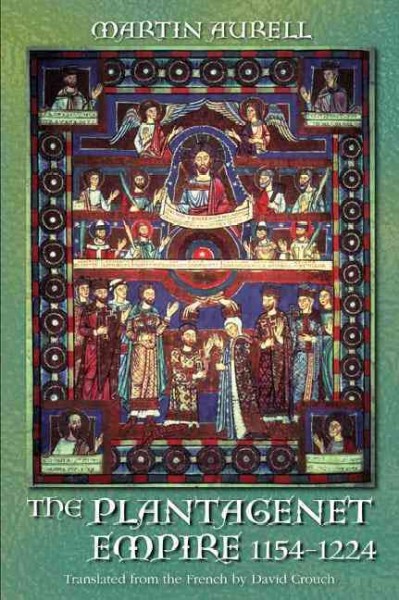
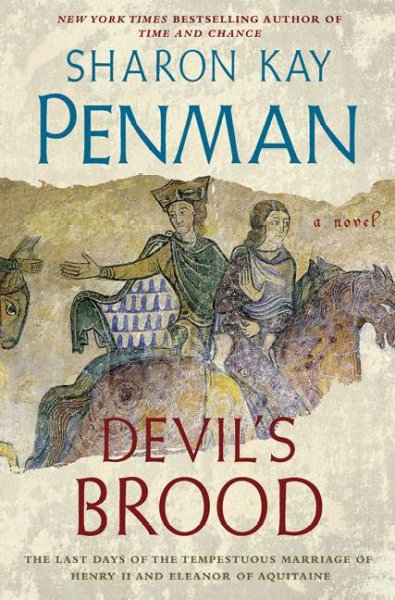
The Plantagenet Empire, 1154-1224 by Martin Aurell
The Plantagenet dynasty secured and then lost most of Western Europewithin the space of a century. In this new translation by David Crouch Martin Aurell revives the passion and politics, revolts and reversals of the Plantagenet Empire. By 1125 young Henry II found himself the head of what was to become known as the Plantagenet Empire, a disparate conglomerate of lands stretching from Scotlandto the Pyrenees, From Ireland to Limousin, founded on both civil war and family ties. Through its three generations of existence civil war and familial passions were to be both the source of sustenance and ultimate destruction of the Empire. This retelling of the drama of the era includes: the murder of Thomas Beckett, advisor to Henry II and later bishop of Canterbury; the wars of rebellion of Richard the Lionheart and John Lackland against their father Henry II; the crusades of Richard the Lionheart culminating in his capture; and the eventual crumbling of the empire under the reign of Henry III at the hands of his father’s widow and Louis VIII. Aurell’s superb knowledge of the complex sources for the period uncovers a world where sophisticated decision making and modern political maneuvering: a world where political spin and propaganda were deliberately employed by Plantagenet Kings in ideological warfare against their rivals.
Devil’s Brood by Sharon Kay Penman
Where the second novel in the trilogy, Time And Chance, dealt with the extraordinary politics of the twelfth century, climaxing with the murder of Thomas Becket and Henry’s confrontation with the Church and self-imposed exile to Ireland, Devil’s Brood centers on the implosion of a family. And because it is a royal family whose domains span the English Channel and whose alliances encompass the Christian world, that collapse will have dire consequences. This is a story of betrayal as Henry’s three eldest sons and his wife enter into a rebellion against him, aligning themselves with his bitterest enemy, King Louis of France. But it is also the story of a great king whose brilliance forged an empire but whose personal blind spots led him into the most serious mistake of his life.
1606 Three Ships Set Out For What Would Become Jamestown Colony In Virginia
The Ships Susan Constant, Discovery, and Godspeed were chartered by the London Company to deliver over a hundred settlers to the east cost of North America. The crossing of the Atlantic took four months and included stops in the Canary Islands and Puerto Rico. Upon reaching the Chesapeake Bay region they explored and selected a peninsula on the James River 40 miles inland for the colony they named Jamestown. The Susan Constant and Godspeed returned to England and the Discovery was left with the colonists.
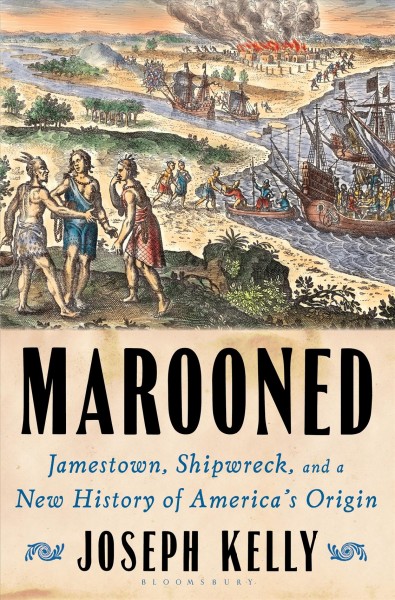
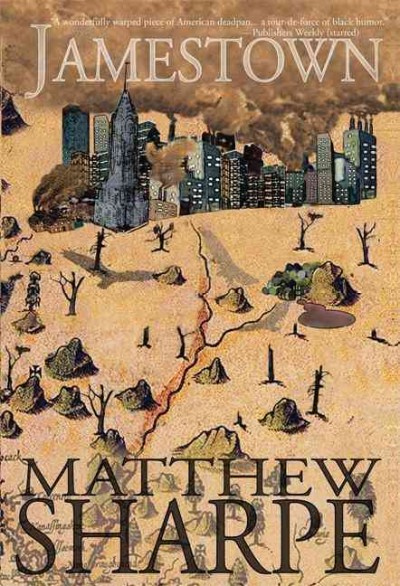
Marooned: Jamestown, Shipwreck, and a New History of America’s Origin. by Joseph Kelly
We all know the great American origin story. It begins with an exodus. Fleeing religious persecution, the hardworking, pious Pilgrims thrived in the wilds of New England, where they built their fabled city on a hill. Legend goes that the colony in Jamestown was a false start, offering a cautionary tale. Lazy louts hunted gold till they starved, and the shiftless settlers had to be rescued by English food and the hard discipline of martial law. Neither story is true. In Marooned, Joseph Kelly reexamines the history of Jamestown and comes to a radically different and decidedly American interpretation of these first Virginians. In this gripping account of shipwrecks and mutiny in America’s earliest settlements, Kelly argues that the colonists at Jamestown were literally and figuratively marooned, cut loose from civilization, and cast into the wilderness. The British caste system meant little on this frontier: those who wanted to survive had to learn to work and fight and intermingle with the nearby native populations. Ten years before the Mayflower Compact and decades before Hobbes and Locke, they invented the idea of government by the people. 150 years before Jefferson, they discovered the truth that all men were equal.
Jamestown: A Novel by Matthew Sharpe
Jamestown chronicles a group of “settlers” (more like survivors) from the ravaged island of Manhattan, departing just as the Chrysler Building has mysteriously plummeted to the earth. This ragged band is heading down what’s left of I-95 in a half-school bus, half-Millennium Falcon. Their goal is to establish an outpost in southern Virginia, find oil, and exploit the Indians controlling the area. Based on actual accounts of the Jamestown settlement from 1607 to 1617, Jamestown features historical characters including John Smith, Pocahontas, and others enacting an imaginative re-version of life in the pioneer colony. In this retelling, Pocahontas’s father Powhatan is half-Falstaff, half-Henry V, while his consigliere is a psychiatrist named Sidney Feingold. John Martin gradually loses body parts in a series of violent encounters, and John Smith is a ruthless and pragmatic redhead continually undermining the aristocratic leadership. Communication is by text-messaging, IMing, and, ultimately, telepathy. Punctuated by jokes, rhymes, “rim shot” dialogue, and bloody black-comic tableaux, Jamestown is a trenchant commentary on America’s past and present that confirms Matthew Sharpe’s status as a major talent in contemporary fiction.
1777 George Washington’s Continental Army Goes Into Winter Quarters At Valley Forge
After a long string of defeats including the lost of the Capital at Philadelphia to the British the Continental Army went into winter quarters at Valley Forge because it was close enough to Philadelphia that they could watch the British but still have some security. Conditions were harsh with poor sanitation and few supplies. At the same time a system of training was instituted and lead by the Prussian drill master Baron Friedrich von Steuben that would make them a better army in the spring.
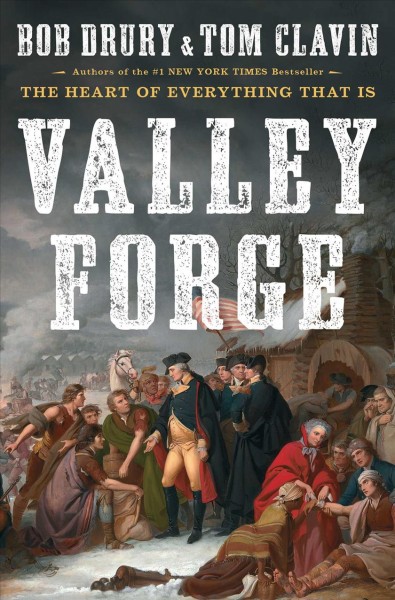
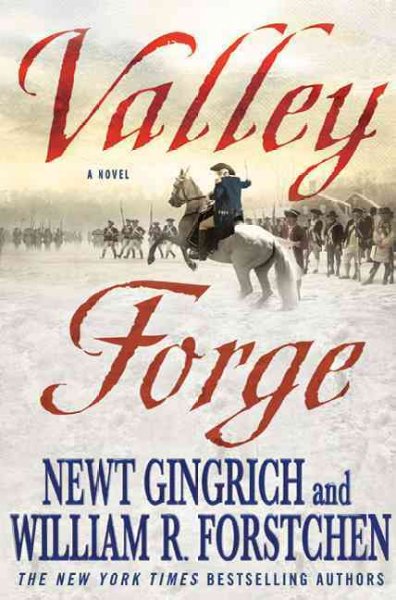
Valley Forge. Bob Drury
On December 19, 1777, twelve thousand members of the American Continental Army staggered into Valley Forge, Pennsylvania, a small encampment twenty miles northwest of Philadelphia. They were poorly fed, ill-equipped, coming off a string of demoralizing defeats at the hands of the British, and faced a harsh winter ahead. Their general, a focused and forceful man named George Washington, was at the lowest point in his career. The Continental Congress was in exile, its treasury depleted. When the rebels arrived at Valley Forge, it looked like they would be on the losing side of history. As days passed, however, Washington realized that the British would not attack, and he embarked on a mission to reshape his army from the top-down. Aided by his close advisors Alexander Hamilton, John Laurens, Henry Knox, and William Howe, his wife Martha, and new friends and allies, Washington transformed the troops from a rag-tag band of volunteers to a fighting force that was ready to take on the British. In six months, he turned the tide of the Revolution and changed the future of the United States forever.
Valley Forge: George Washington and the Crucible of Victory by Newt Gingrich
It’s the winter of 1777, and Washington’s battered, demoralized army retreats from Philadelphia. Arriving at Valley Forge, they discover that their repeated requests for a stockpile of food, winter clothing, and building tools have been ignored by Congress. With no other options available, the men settle down for a season of agony. For weeks the dwindling army freezes under tents in the bitter cold. Food runs out. Disease festers. The men are on the point of collapse, while in Philadelphia the British, joined by Allen van Dorn, the Loyalist brother of the dead patriot, Jonathan van Dorn, live in luxury. In spite of the suffering and deceit, Washington endures all, joined at last by a volunteer from Germany, Baron Friederich von Steuben. With precious few supplies and even less time, von Steuben begins the hard task of recasting the army as a professional fighting force capable of facing the British head-on—something it has never accomplished before—and in the process he changing the course of history.
1998 President Clinton Becomes The Second US President In History To Be Impeached
The impeachment was an out growth of the investigation of independent counsel Kennith Starr who was originally tasked with investigating the Whitewater Real Estate scandal. As part of that investigation he uncovered several extra-marital affairs by Clinton. Starr determined during sworn testimony that Clinton had committed perjury and obstruction of justice trying to hid those affairs. The House of Representatives voted to impeach him. He was tried in the Senate in January and the Senate found him not guilty in February by 2 votes.
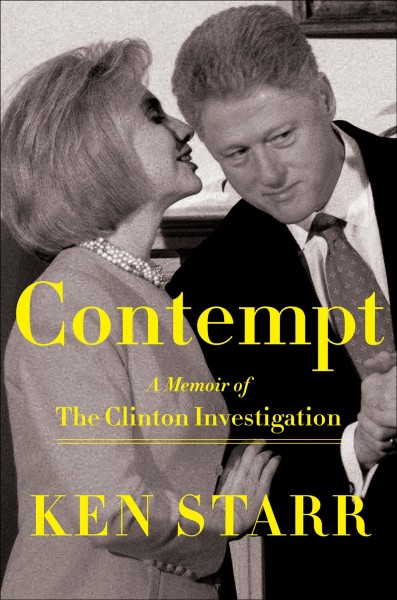
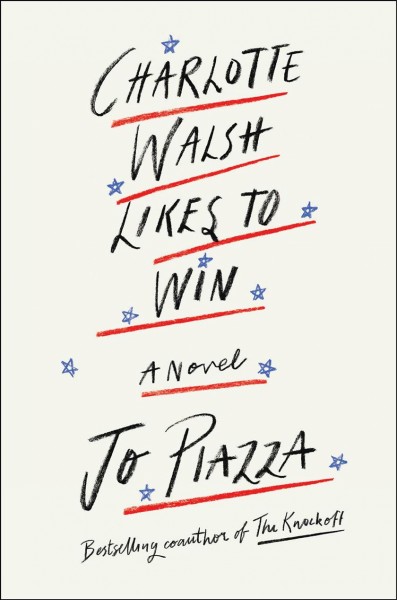
Contempt: A Memoir of the Clinton Investigation by Ken Starr
You could fill a library with books about the scandals of the Clinton administration, which eventually led to President Clinton’s impeachment by the House of Representatives. Bill and Hillary Clinton have told their version of events, as have various journalists and participants. Whenever liberals recall those years, they usually depict independent counsel Ken Starr as an out-of-control, politically driven prosecutor. But as a New York Times columnist asked in 2017, “What if Ken Starr was right?” What if the popular media in the 1990s completely misunderstood Starr’s motives, his tactics, and his ultimate goal: to ensure that no one, especially not the president of the United States, is above the law? Starr — the man at the eye of the hurricane — has kept his unique perspective to himself for two full decades. In this long-awaited memoir, he finally sheds light on everything he couldn’t tell us during the Clinton years, even in his carefully detailed “Starr Report” of September 1998.
Charlotte Walsh Likes To Win: A Novel by Jo Piazza
[Events of Clinton’s Impeachment are recent enough that no one has written a work of historical fiction about them that a library owns. We have selected a novel about political scandal at random instead]
From Jo Piazza, the bestselling author of The Knock Off, How to Be Married, and Fitness Junkie, comes an exciting, insightful novel about what happens when a woman wants it all—political power, a happy marriage, and happiness—but isn’t sure just how much she’s willing to sacrifice to get it. Charlotte Walsh is running for Senate in the most important race in the country during a midterm election that will decide the balance of power in Congress. Still reeling from a presidential election that shocked and divided the country and inspired by the chance to make a difference, she’s left behind her high-powered job in Silicon Valley and returned, with her husband Max and their three young daughters, to her downtrodden Pennsylvania hometown to run in the Rust Belt state. Once the campaign gets underway, Charlotte is blindsided by just how dirty her opponent is willing to fight, how harshly she is judged by the press and her peers, and how exhausting it becomes to navigate a marriage with an increasingly ambivalent and often resentful husband. When the opposition uncovers a secret that could threaten not just her campaign but everything Charlotte holds dear, she has to decide just how badly she wants to win and at what cost. A searing, suspenseful story of political ambition, marriage, class, sexual politics, and infidelity, Charlotte Walsh Likes to Win is an insightful portrait of what it takes for a woman to run for national office in America today. In a dramatic political moment like no other with more women running for office than ever before, Jo Piazza’s novel is timely, engrossing, and perfect for readers on both sides of the aisle.

